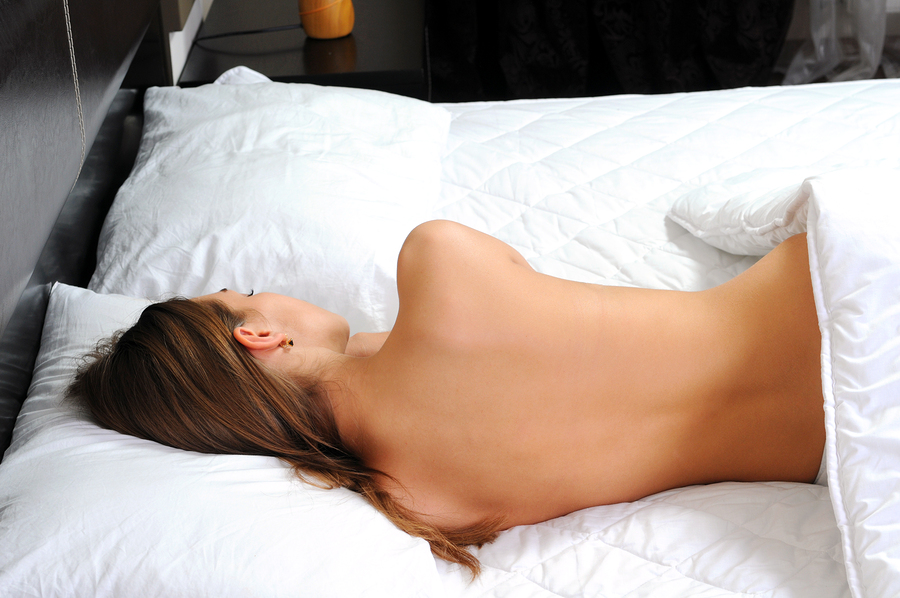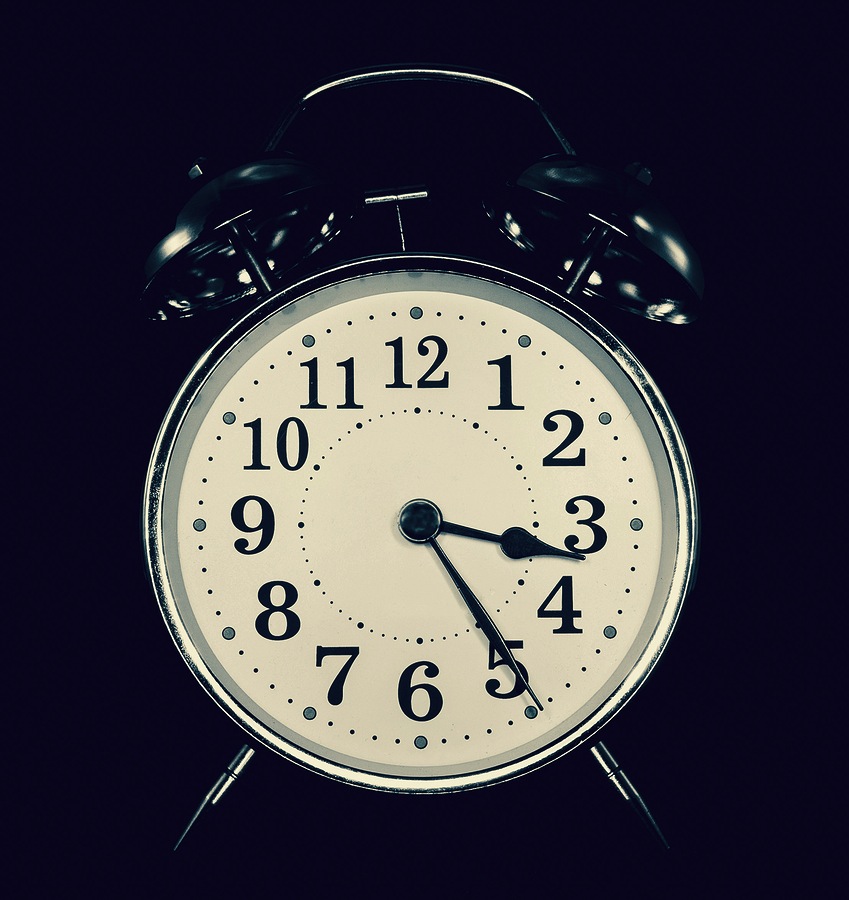Lack of sleep not only increases your appetite, it can also make you less attractive, studies have found. For most of us, waking in the small hours is the problem – here’s how to get back to sleep fast
A lack of sleep not only increases tiredness and irritability – it can also expand your waistline.
After being deprived of one night’s rest, participants in a study went on to purchase food that was higher in calories.
The researchers from Uppsala University in Sweden found that poor or no sleep resulted in raised levels of a hormone that is linked to boosting hunger.
What’s more, another study this week found sleep deprived people are perceived as less attractive than those that get enough shut-eye.
In fact, two thirds of those who complain of insomnia are women aged 35-60 and for most of us, the problem will be waking intermittently in the hours between midnight and 7am.
Since the recession hit, one fifth of us regularly get fewer than five hours sleep a night and a quarter now wake a mind-shattering three times a night or more.
Of course, there’s money worries but there could also be biological reasons for these 4am blues.
So, as anyone who has sat bolt upright in the wee hours has desperately wished to know – how can we get back to sleep?
4 reasons you wake in the middle of the night
‘We sleep in cycles of around 90 minutes,’ says Dr Nerina Ramlakhan, a psychophysiologist specialising in sleep at the Capio Nightingale Hospital and author of Tired But Wired (from Amazon). Each cycle consists of three ‘phases’: light sleep, deep sleep and Rapid Eye Movement or REM sleep. ‘In REM, we sleep more shallowly and are easier to rouse, say by a partner snoring or cat jumping on the bed,’ she explains. ‘And as the night progresses, not only is the amount of REM increased, your deep sleep phases also get shallower. That’s why typically, between the hours of 2am and 4am we’re prone to wake up more easily,’ says Dr Ramlakhan. Subsequently, as we have already experienced our deepest phase of sleep earlier in the night, we may wake jolt upright and feel it’s impossible to get back to sleep. ‘But there are number of biological, lifestyle – even genetic – reasons why we become more susceptible to waking up at this time. For example:
STRESS ‘In order for us to get to sleep and stay asleep our bodies need an essential balance of biochemical hormones and messengers,’ says Dr Ramlakhan. ‘Most crucially melatonin, serotonin and tryptophan are brain chemicals essential to sleep. When we become stressed during the day or over time, we start to produce stress hormones such as cortisol and adrenalin that impact that sleep biochemistry’. For example, adrenalin is a stress hormone that stops you staying asleep by blocking your body from going into the deeper sleep stages. ‘Adrenalin and cortisol hang around in the system for up to 12 hours and what could be waking you in the early hours is an excess of these hormones as your body tries to process them,’ says Dr Ramlakhan
What to do. Take exercise during the day. ‘Cardiovascular exercise such as 45 minutes swimming, brisk walking or jogging is one of the most efficient ways to burn off excess stress hormones,’ says Dr Ramlakhan. The beneficial effect on sleep is greatest when exercise is taken within three to six hours of bedtime, says Dr Gregg Jacobs, insomnia speecialist and author of Say Goodnight to Insomnia (Rodale £8.99). ‘But exercising less than three hours before bedtime however can make it more difficult to fall asleep.’
Extra Help Have a Himalyan crystal salt bath before bed. These salts contain rich detoxifying and tension-reducing properties that help relax the mind and the muscles and reduce stress before bed. We love Ina Crystals White Gold Detoxifying Crsytals £45 from spancenk.com (too much? At himalyancrystalsalt.co.uk, buy generic salts for as little as £5.99).
DEPRESSION ‘Early morning wakening can be a sign of depression,’ says Professor Jim Horne, insomnia researcher at Loughborough University and author of Sleepfaring: A Journey Through The Science of Sleep (Oxford £8.99). ‘No one is quite certain as to why this occurs but one theory is that because depressed people tend to have more disturbing dreams, it’s nature’s way of waking the body before this happens, which is typically in the REM dreaming sleep phase.’
What to do ‘It’s essential that you look for other symptoms,’ says Professor Horne. ‘Not everyone who is experiencing insomnia will be depressed. However if you have even one or two other symptoms of depression, and you have experienced repeated episodes of early morning wakefulness, this is the point at which you need to see your doctor.’ Common symptoms of depression include crying a lot and feeling low-spirited much of the time (see a full list at mind.org.uk)
Extra Help Try L-Theanine. ‘This is an amino acid that helps to calm the brain making it more likely to stay asleep,’ says nutritionist Paul Chamberlain. ‘It’s great for a racing or worried mind. Take it on an empty stomach about one hour before bed. Solgar L-Theanine £25.30 from health food stores.
YOUR DIET ‘If you’re eating a diet high in sugar and refined white carbohydrates it could be disordered blood sugar that is causing you to wake in the early hours,’ says nutritional therapist Charlotte Watts, co-author of The De-Stress Diet (Hay House £12.99). ‘This causes highs and lows that follow into the night. When blood sugar drops, the adrenal glands quickly release a shot of adrenalin to raise blood sugar and provide energy, this is a survival mechanism that the body employs. As blood sugar drops dramatically, the body’s biology reacts as if it’s lapsing into a coma, and releases a shot of adrenalin to prevent this.’
What to do ‘Always eat a protein breakfast’, suggests Paul Chamberlain, ‘for example with yoghurt, eggs or beans and have protein at every meal such as meat, fish, legumes or tofu and small protein snacks through the day, for example six almonds or Brazil nuts are ideal.’ Protein helps the body make melatonin, its key sleep-promoting hormone. ‘Minimise sugar and stimulants such as biscuits, cakes fizzy and caffeinated drinks and too much alcohol as these all disturb blood sugar and subsequently, sleep.’
Extra Help Eat for sleep! ‘A few hours before bed, ideally at dinner try and eat tryptophan-rich foods such as fish, chicken, turkey, bananas, figs, tofu, almonds and avocadoes,’ suggests Charlotte Watts. This helps the body make serotonin, an important natural chemical that initiates calm and sleep quality. ‘Avoid foods such as cheese, chocolate, sauerkraut, bacon, ham, sausage, aubergine and tomato close to bedtime as these contain the amino acid tyramine which increases the release or adrenalin that will stimulate the system.’
HORMONES Women’s hormones play a key role in insomnia particularly oestrogen,’ says Victoria Dawson, author of Insomnia : The Essential Guide (Need-To-Know £8.99). ‘Women can have sleep difficulties before their period as their eostrogen levels drop. In the run-up to the menopause – or perimenopause – women in their 40s find their oestrogen levels may drop causing sleep problem and during the menopause, women may feel uncomfortable during the night and wake due to hot flashes.
What to do ‘It could be that you need less sleep than you think,’ says professor Horne. ‘People get awfully anxious about getting the prescribed eight hours, but the amount of sleep we need is as individual as our size and shape and saying everyone needs eight hours is like saying everyone should wear size 12. The litmus test to whether you are getting enough sleep at night is how you are feeling during the day. Everyone will feel a dip at around 4pm but you are feeling sleepy and getting dips in energy throughout the day and then say, nodding off before 9pm, see your doctor.’ Your doctor can check your hormone levels and if needed, refer you to a sleep disorder clinic where your sleep quality will be monitored and checked for medical conditions such as Restless Legs Syndrome (in which you involuntarily kick at night) that could be disturbing your sleep.
Extra Help Take Magnesium. ‘Magnesium calms the nervous system and the muscles and can help balance hormones,’ says Charlotte Watts. Taking between 125-300mg before bed and at mealtimes has been found to increase quality of sleep. From health food stores.
5 TRICKS TO GET BACK-TO-SLEEP FAST
1. Don’t clockwatch Turn the clock away from you before you get into bed at night. Watching the clock creates anxiety and what is called ‘Attentional Bias’ in which what you focus on – such as getting back to sleep – is less likely to happen because you’re simply trying too hard. Allow yourself to be in the land of not knowing what time it is and however tempting, don’t check the clock.
2. Practice being as sleepy as possible Don’t worry about being awake, just allow yourself to rest there in bed, allowing yourself to feel the benefits of rest. Remind yourself that even if you aren’t sleeping, relaxing in bed will still be beneficial to your mood and wellbeing.
3. Bring your attention to your breathing Lie on your back and breathe deeply into your belly, focusing on the exhalation. As you breathe out, try and prolong the exhalation as much as you can, ideally between three and five seconds. Allow the belly to inflate.
4. Count your exhales As you exhale, slowly count from one to ten, a count of one for the length of every exhalation. When you reach ten, start again. This kind of repetitive and slow counting creates a trance-like state that makes it easier to fall back to sleep.
5. Tell yourself a bedtime story Think of something you love to do, that is non-competitive and engages your imagination, then literally watch yourself doing it step-by-step. The idea is to create a scene you find safe, comforting and calming. If you love to cook, imagine yourself chopping, stirring, frying up the perfect meal. If you love to paint, think of yourself sitting in and slowly creating your ideal landscape.
6. Wave lull Imagine yourself lying on your favourite beach scene – anywhere from a cliffside in Cornwall overlooking the waves to a sandy bay in Barbados. Then count the waves lapping at the sea. As you hear a wave coming in take a breath in, as you hear it going out, take a breath out as you gently fade back into a restful state.
RELATED: SLEEPING PILLS A no-frills guide
Like this article? Sign up to our newsletter to get more articles like this delivered straight to your inbox.























































